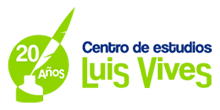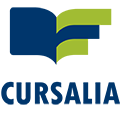Yes, we know you are thinking about it: should I prepare through face-to-face teaching or online?
Our Selectivity, Access to Vocational Training and ESO Graduate students frequently ask us this same question. We are here to help you make the decision.
A good idea when choosing is to list the pros and cons of each option, and decide how much weight they have for us.
online teaching
An online course has the following ADVANTAGES:
- Flexibility and reconciliation of schedules: This modality allows you to personalize your study schedule, adapting it to your family, work and leisure needs.
- global access: You can study from anywhere in the world. In addition, the best online courses offer multi-platform access: computer, laptop, tablet or smartphone.
- Variety of resources: videos, PDFs, questionnaires, tasks, mock exams, activities, kahoots, podcasts... The list of digital resources for online learning is endless.
- Accessibility: This modality increases the study possibilities of disabled people, since it offers customization options and assistance tools that facilitate learning.
- The costs: the last but not the least. With online teaching you will save money not only on the online course, but also on travel, accommodation, meals, etc.
On the contrary, online teaching has some DISADVANTAGES:
- Autonomy and discipline problems: Not all students are prepared to study from home. This work system requires sufficient maturity and discipline to comply with the teaching schedules, adjust to a schedule and complete all the course contents.
- Socialization: Yeah! Socializing is essential for learning. Group classes, work groups or interaction with your teachers are essential for studying to become a wonderful project.
In-person teaching
Let's go first with the ADVANTAGES of a face-to-face course:
- Interaction with teachers and classmates: It's an open secret: the acquisition of knowledge is more productive when done in a group.
- Immersion in the culture of effort: It's like in the gym: if you see your classmates studying and preparing for their exams every day, you will feel stronger to achieve it.
- Instant feedback: In face-to-face teaching, your teacher will be the one who, day by day, guides you to verify that you take the appropriate steps to achieve your goals.
- Emotional experience and development of social skills: Normally, the period of study prepares people for their professional career and adult life. Unlike online teaching, experiencing in-person teaching with a classroom, teachers, and classmates will prepare you for a multitude of everyday situations that you will have to face in the future. It will be like making some real life practices 😉
DISADVANTAGES of face-to-face teaching:
- geographical limitation: Not everyone can find a suitable academy near their place of residence to prepare.
- Our schedules: Teachers in education and training centers also need to eat, sleep and spend time with our families and friends. For this reason, face-to-face teaching is generally carried out from Monday to Friday, in the morning or afternoon. And not all students can adapt to this pace.
- The price: Of course, face-to-face teaching is more expensive. To the operating costs of the Center where you prepare you must add accommodation, food and other additional factors.
THE ANSWER
If you have read this far it is because you want to know the opinion of someone who is an expert in teaching. Here we go:
- If you are a student who needs some help getting organized, and the cost of the course is within your budget, don't hesitate: choose in-person teaching. If you live in Madrid, our face-to-face courses from EvAU, PCE UNEDasiss, Access to Higher FP and ESO Graduate are the best option for you.
- If you are far from the training center or if you need to tighten your budget, choose online teaching. But we recommend you choose the best possible option. If you are looking for the best online course at the most competitive price, you should review what cursalia.online can offer you.
And if you still have doubts about which modality to choose, leave us a comment, or directly write us a WhatsApp.











